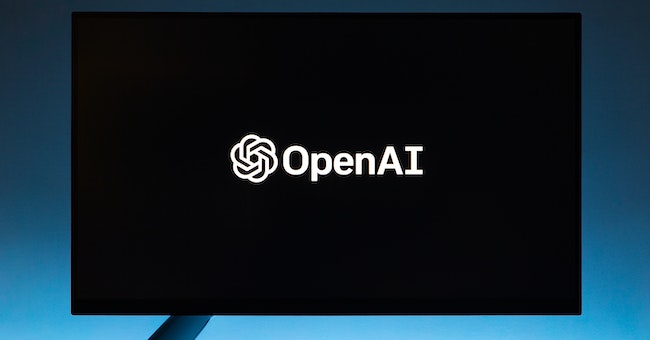ChatGPT Bombs Accounting Class: Exploring the Limitations of Language Models

In recent years, artificial intelligence (AI) language models have revolutionized various fields, including education. One such language model, ChatGPT, has gained immense popularity for its ability to engage in conversational interactions and provide information on a wide range of topics. However, when it comes to accounting, it seems that ChatGPT falls short in several ways. This article delves into the limitations of ChatGPT in accounting class and explores the struggles it faces with accounting concepts. Furthermore, we investigate its limitations in other subjects, highlighting potential areas of concern. Finally, we reflect on the future of AI language models in this particular field.
What is ChatGPT?
ChatGPT is an advanced language model developed by OpenAI. It is part of the GPT (Generative Pre-trained Transformer) family. This model has been trained on a vast amount of text data from the internet and various sources, allowing it to generate human-like responses to a wide range of prompts and questions.
The capabilities of language models like ChatGPT are quite impressive. They can understand and generate coherent text, engage in conversations, answer questions, provide explanations, and even offer creative ideas. They have the ability to comprehend context, understand nuances, and generate contextually appropriate responses. Language models can also perform tasks like language translation, summarization, sentiment analysis, and more.
However, it is important to be aware of the limitations of language models. Firstly, they lack genuine understanding and common sense reasoning. While they can generate text that sounds plausible, they don't truly comprehend the meaning behind it. They rely solely on patterns learned from training data and do not possess real-world knowledge or experiences beyond what has been pre-trained. This can lead to incorrect or nonsensical responses, especially when presented with misleading or ambiguous prompts.
Language models can also be sensitive to input phrasing and can provide different responses based on slight changes in wording. They may occasionally produce biased or inappropriate content, as they learn from the biases present in the training data. Additionally, language models can be excessively verbose and overuse certain phrases or ideas. They also struggle with long-term context retention and may not remember information provided in earlier parts of a conversation.
Furthermore, language models are not capable of independently verifying the accuracy of information or fact-checking. They can provide answers based on the information they have been trained on, even if it is outdated, incorrect, or misleading. It is crucial for users to independently verify information from reliable sources.
The Power of ChatGPT
AI language models like ChatGPT have revolutionized education by providing students and teachers with a powerful tool for learning and information retrieval. With its vast knowledge base, ChatGPT can assist in research, provide explanations, and answer questions on a wide range of topics. It opens up new avenues for interactive learning, allowing students to engage with the material in a conversational manner.
Examples of successful interactions and applications:
In a bid to showcase the competence and excellence of ChatGPT in a rather intuitive way, here we have a couple of real-life examples: Regarding education in a broad sense, ChatGPT is no less than a versatile and efficient powerhouse. For instance, once you type an exact topic (let's say, cellular biology)and explicitly command it to expand on it, you will get its detailed and organized answer within seconds. It instantly generates content in a logical manner, starting from the general introduction of this topic and then expounds into several related theoretical branches(such as "cell structure and function"). If you are a scholar working on a specific subject, it can also provide you with inspiring ideas. On the theme of cellular biology, it suggests topics like "cell model", "cell city analogy", etc. And surprisingly, these all seem to make sense. Even if you are a language learner, you would also benefit greatly with its assistance. Let's say you are preparing for the French A2 Exam and you need a helpful study schedule. In this scenario, ChatGPT can provide you with an elaborate version of schedule that sets forth your to-do list in detail.
Furthremore, for teachers, ChatGPT can assist in creating course content, including presentations, worksheets, quizzes, and other educational materials customized to meet students' individualized requirements. It can also aid in grammar and writing checks, providing feedback to students, teaching writing skills, and grading student essays. Additionally, ChatGPT can help in designing syllabus outlines, developing course objectives and goals, generating topics for the course, planning lessons, and identifying and assembling relevant resources and materials.
The Challenges of ChatGPT in Accounting Class
As an AI language model, ChatGPT is capable of answering a wide range of questions on various topics. However, when it comes to accounting, there are certain challenges that it faces due to the complexity of the subject matter. We will identify the limitations of ChatGPT's knowledge base in accounting, and discuss some common pitfalls and misconceptions encountered in accounting topics. In other cases, if you are interested n Accounting Online Courses, we recommend you to view our Accounting Online Courses List.
Identifying the Limitations of ChatGPT's Knowledge Base in Accounting
While ChatGPT can provide accurate answers to many accounting questions, it can struggle with more complex topics that require a deep understanding of accounting concepts. For example, ChatGPT may not have a full understanding of Generally Accepted Accounting Principles (GAAP) or International Financial Reporting Standards (IFRS) and may provide incomplete or inaccurate information on these topics.
Furthermore, ChatGPT may not be able to provide practical advice for specific accounting scenarios. For instance, if a student is struggling with a specific accounting problem that requires judgment calls, ChatGPT may not be able to provide specific guidance on how to solve the problem or offer suggestions for alternative approaches.
Another limitation is that ChatGPT may not be able to recognize the context of a question. This could lead to inaccurate or irrelevant answers. For example, if a student asks ChatGPT a question about the tax implications of a specific transaction but fails to provide enough context, ChatGPT may provide an answer that is not relevant to their situation.
Common Pitfalls and Misconceptions Encountered in Accounting Topics
In an accounting class, students often encounter common pitfalls and misconceptions that can be challenging for ChatGPT to address accurately. Accounting involves complex calculations, financial analyses, and interpretation of financial statements, which may require contextual understanding and professional judgment. ChatGPT may struggle to provide precise and tailored guidance in such scenarios.
Misunderstanding the Accounting Equation: The accounting equation is a fundamental concept in accounting that states that assets must always equal liabilities plus equity. However, many students struggle to grasp this concept and may make errors in their calculations.
Confusion with Debits and Credits: Debits and credits are used to record financial transactions in accounting. However, many students find it challenging to understand which accounts are debited and which are credited, leading to errors in their journal entries.
Not Understanding the Role of Accounting Standards: Accounting standards, such as GAAP and IFRS, are crucial in ensuring that financial information is consistent, transparent, and reliable. However, many students fail to understand the importance of these standards and may not follow them correctly.
Assuming Accounting is Just About Math: While accounting does involve numbers and calculations, it is also a complex system of rules and procedures. Many students fail to recognize this, leading to errors in their understanding of accounting concepts.
ChatGPT's Struggles with Accounting Concepts
Accounting is an important aspect of any business, but it can be a difficult concept to grasp. ChatGPT is no exception, and we have struggled with accounting concepts in the past. In this blog post, we will explore the reasons behind our inaccuracies in accounting and highlight some case studies that illustrate potential pitfalls.
Reasons for Inaccuracies
The inaccuracies exhibited by ChatGPT in accounting can be attributed to several factors. Firstly, language models like ChatGPT rely on vast amounts of text data from the internet, which may contain inaccuracies or inconsistencies in accounting information. This can impact the responses generated by ChatGPT and lead to incorrect or misleading answers.
Secondly, the complexity of accounting concepts and the need for contextual understanding pose challenges for ChatGPT. Accounting involves applying principles to specific scenarios, considering industry-specific regulations and standards, and understanding the interplay between various financial elements. ChatGPT may struggle to interpret and apply this contextual knowledge accurately, leading to inaccuracies in its responses.
Case Studies
To illustrate some of the potential pitfalls of accounting, let's take a look at some case studies.
Case Study 1: Treatment of Goodwill in Financial Statements
Suppose a user asks ChatGPT about the treatment of goodwill in financial statements. ChatGPT may provide a generic explanation stating that goodwill is an intangible asset that represents the excess of the purchase price over the fair value of identifiable assets acquired in a business combination. While this explanation captures the basic concept, it fails to consider specific accounting standards or industry practices.
In reality, the treatment of goodwill in financial statements is governed by accounting standards such as the Generally Accepted Accounting Principles (GAAP) or International Financial Reporting Standards (IFRS). These standards provide guidelines on how to recognize, measure, and disclose goodwill. ChatGPT's response might not reflect the complexities and nuances of these standards, potentially leading to an incomplete understanding or misinterpretation of the topic.
Case Study 2: Differentiating Cash Basis and Accrual Basis Accounting
Consider a scenario where a student asks ChatGPT to explain the difference between cash basis and accrual basis accounting. ChatGPT might provide general information about both methods, such as cash basis recording transactions when cash is received or paid, and accrual basis recognizing revenues and expenses when they are earned or incurred. However, ChatGPT may fail to emphasize the key differences between the two methods, such as the timing of revenue and expense recognition or the compliance requirements imposed by accounting standards. This could result in students not fully grasping the implications and limitations of each method, potentially leading to confusion or incorrect application in practice.
These case studies demonstrate the potential pitfalls when relying solely on ChatGPT for accounting guidance. It highlights the importance of seeking additional resources, consulting accounting professionals, or referring to authoritative accounting standards to ensure a comprehensive and accurate understanding of complex accounting concepts.
Understanding ChatGPT's Limitations in Other Subjects
Domains beyond Accounting Where ChatGPT Falls Short
While ChatGPT is capable of answering a wide range of questions, it has limitations in certain subject areas. One such area is accounting. ChatGPT may not be able to provide accurate responses to complex accounting questions that involve nuanced interpretations of financial statements and tax laws.
However, accounting is not the only area where ChatGPT falls short. It may also struggle with questions related to science, technology, engineering, and mathematics (STEM). These subjects often require a deep understanding of complex concepts, and ChatGPT may not be able to provide accurate or complete responses to such questions.
Another particular area where ChatGPT may struggle is in providing legal advice. While ChatGPT can certainly provide general information on legal topics, it certainly is not a substitute for legal advice from a licensed attorney. Legal matters often involve complex statutes and case law, and ChatGPT may not be able to provide accurate or comprehensive answers to questions related to such matters.
Subjects where ChatGPT May Provide Incorrect or Inadequate Responses
Medical advice: While ChatGPT can provide general information on medical topics, it is not a substitute for medical advice from a licensed healthcare professional. Medical matters often involve complex diagnoses and treatment plans, and ChatGPT may not be able to provide accurate or comprehensive answers to questions related to such matters.
Social sciences: ChatGPT may struggle with questions related to the social sciences, such as sociology, psychology, and anthropology. These subjects often involve complex theories and research methods, and ChatGPT may not be able to provide accurate or complete responses to questions related to such matters.
Philosophy: ChatGPT may struggle with questions related to philosophy, which often involve abstract concepts and complex arguments. ChatGPT may not be able to provide accurate or comprehensive responses to questions related to such matters.
It is important to understand the limitations of ChatGPT and to use it accordingly. While ChatGPT can be a useful tool for generating quick answers to simple questions, it should not be relied upon for complex or nuanced matters that require the expertise of a specialist.
Conclusion
In this article, we shed light on the limitations of AI language models such as ChatGPT in the context of accounting education. While ChatGPT can be a useful tool for generating responses and providing feedback, it has its limitations when it comes to complex accounting concepts and calculations. The article highlights the importance of critical thinking and evaluation in the learning process, and the need for human expertise in accounting education.
Looking forward, the future of AI language models in education is undoubtedly promising, but it is important to recognize their limitations and use them as a supplement to human expertise rather than a replacement. As AI technology continues to advance, it is crucial to ensure that it is used ethically and responsibly in education. In the final analysis, while ChatGPT may have its limitations, it is still a valuable tool in the educational landscape, and its potential can be maximized with careful consideration and application.





